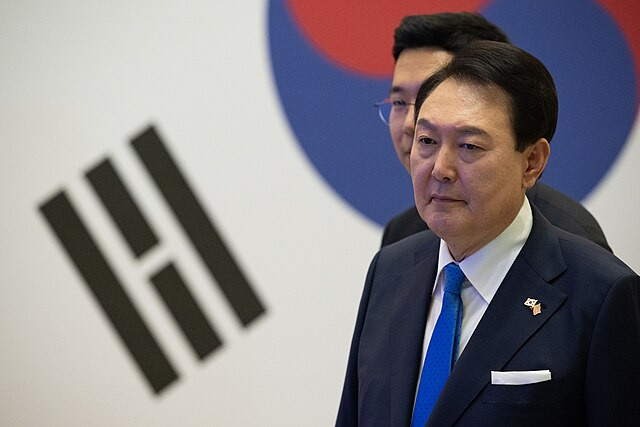South Korea's Constitutional Court unanimously upheld the impeachment of President Yoon Suk Yeol on Friday, removing him from office over his abrupt martial law declaration last December that sent troops to the National Assembly and ignited a political crisis in one of the United States' closest Asian allies.
Yoon's ouster initiates a 60-day window to elect his successor. Prime Minister Han Duck-soo was reinstated as acting president following a prior ruling by the court on March 24. Yoon now faces an upcoming criminal trial on charges of insurrection stemming from the December 3 broadcast in which he declared martial law-South Korea's first such declaration in more than four decades.
The nine-judge panel, led by acting Chief Justice Moon Hyung-bae, found that Yoon's actions failed to meet the legal threshold for declaring a national crisis. "The former president's declaration of martial law did not meet the legal requirement for a national crisis," Moon said in televised remarks. He added that Yoon had violated the law by deploying military forces to block parliamentary efforts to reverse his decree, according to Yonhap.
South Korea's Parliament voted to reject the martial law order within hours of its announcement and formally impeached Yoon on December 14. He was suspended from office immediately thereafter. The Constitutional Court's decision on Friday marks the final step in the legal process and makes Yoon the first sitting South Korean president to be both impeached and criminally indicted.
Yoon has denied any wrongdoing, insisting the martial law declaration was necessary to defend the country from "pro-North Korean" and "anti-state" elements.
The court's ruling reverberated across Seoul. Protesters and supporters of the former president gathered outside the court under heavy police presence as the verdict was read. The Democratic Party hailed the decision as a "people's victory," while Yoon's conservative People's Power Party said it "humbly accepts" the ruling, Yonhap reported.
Markets reacted swiftly to the verdict. South Korea's benchmark Kospi index dropped 1.66%, the Kosdaq declined 0.85%, while the South Korean won strengthened about 1% against the dollar.
In response to the political shake-up, Finance Minister Choo Kyung-ho convened an emergency meeting with Bank of Korea Governor Rhee Chang-yong and financial regulators "to examine the impact on the financial and real economy following the Constitutional Court's ruling," according to Seoul-based Chosun Biz.




